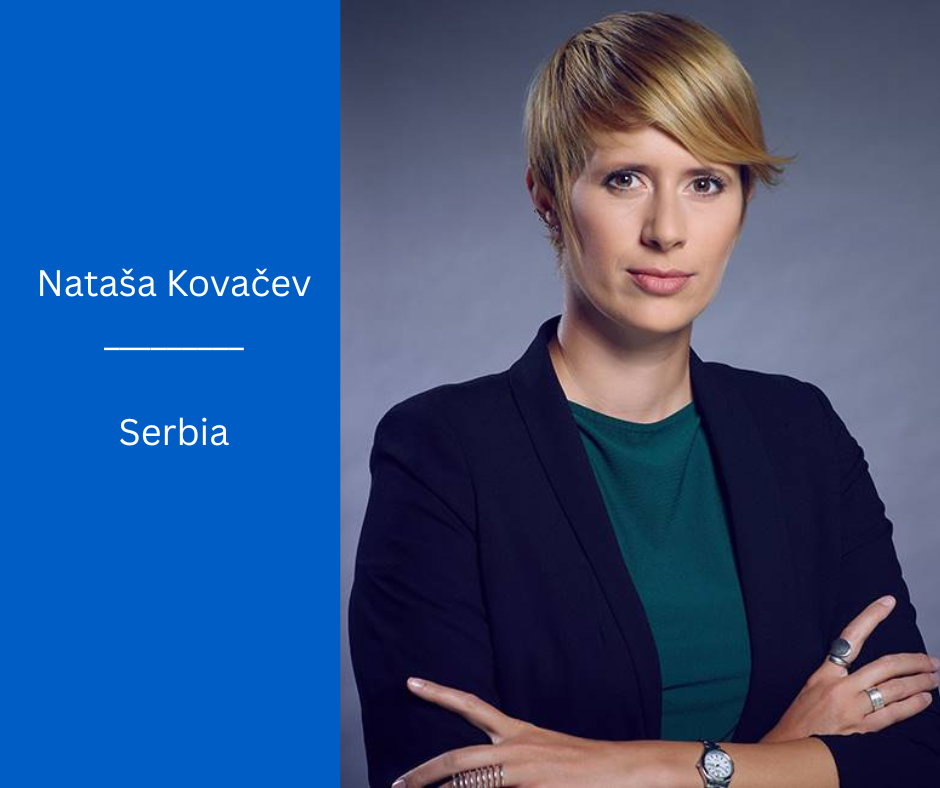EUVP visit story - Nataša Kovačev
Ask the questions - here is the chance: The big opportunity called EUVP
A wider picture, interesting people and thousands of steps taken - maybe those could be the key takeaways from my visit to Brussels in mid-September.
Brussels in mid-September.
“Choose at least three topics that interest you and we’ll try to connect you with people who can give you a deeper insight”, they said. What I expected were formal conversations with more or less known information about the procedures and policies of the European institutions. What I got from the European Union Visitors Programme was something completely different. And much better.
My name is Nataša Kovačev. I’m a journalist from Serbia, from the city of Novi Sad, where almost a year ago a concrete canopy fell from the renovated railway station building and killed sixteen people. That started a wave of protests that is still ongoing. It also affected all other areas of society, such as education, judiciary, as well as the freedom of the press. It has put a question mark above the rule of law in my country. And why am I saying all this? Because it was important for me, among other things, to try to understand the position of the European Union towards everything that is going on in Serbia at the moment. I wanted to really understand it, beyond what we can or cannot hear in diplomatic discussions.
The first theme chose for my study tour was: The European Media Freedom Act - legislation which came into force at the beginning of August this year. An important step for preserving freedom of the press inside the EU, but also very important for journalists and all citizens in candidate countries, who are now obliged to follow it. I got a chance to talk to people in the European Commission’s Directorate General for Communications Networks, Content and Technology. I learned from them how the Act was created and about the ongoing struggle to implement it. I also gained important insights about the Act from women in the European Federation of Journalists and the European Centre for Press and Media Freedom.
The second theme was European enlargement, with particular focus on the negotiations process which Serbia is currently going through in order to become an EU member state. For several years now it seems as if Serbia has been standing still, with little progress on this path. There are different reasons for that and there are always at least two sides to every story, so I wanted to discover the perspectives of the people who write the reports on Serbia’s progress - how do they see it, what are the good and the bad moves, what are the steps needed in order to get on track again? Once more, I got the wider picture and some important insights while talking to people from the European Parliament’s Directorate-General for External Policies of the Union, the European Commission’s Directorate-General for Enlargement and Eastern Neighborhood, the European External Action Service (EEAS), and from think tanks in Brussels.
Maybe the least information came from my interlocutors regarding the third topic - the Critical Raw Materials Act (CRMA). For the country I come from, it is an important theme since the European Union decided to include the disputed Jadar project on the list of its strategic projects outside the Union for obtaining critical raw materials such as lithium. In this area most of my questions unfortunately remained unanswered.
Nevertheless, the chance to be part of the European Union Visitors Programme was a nice opportunity to meet people and improve my understanding of the way the big European family functions. Because even at times when it seems a bit dysfunctional, it is still the family that we lean to.
